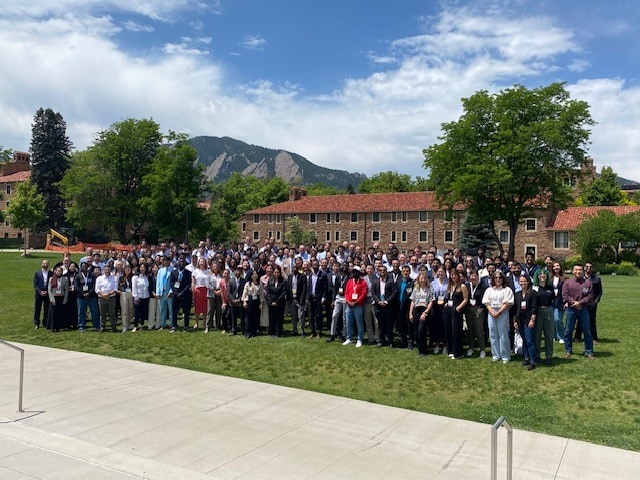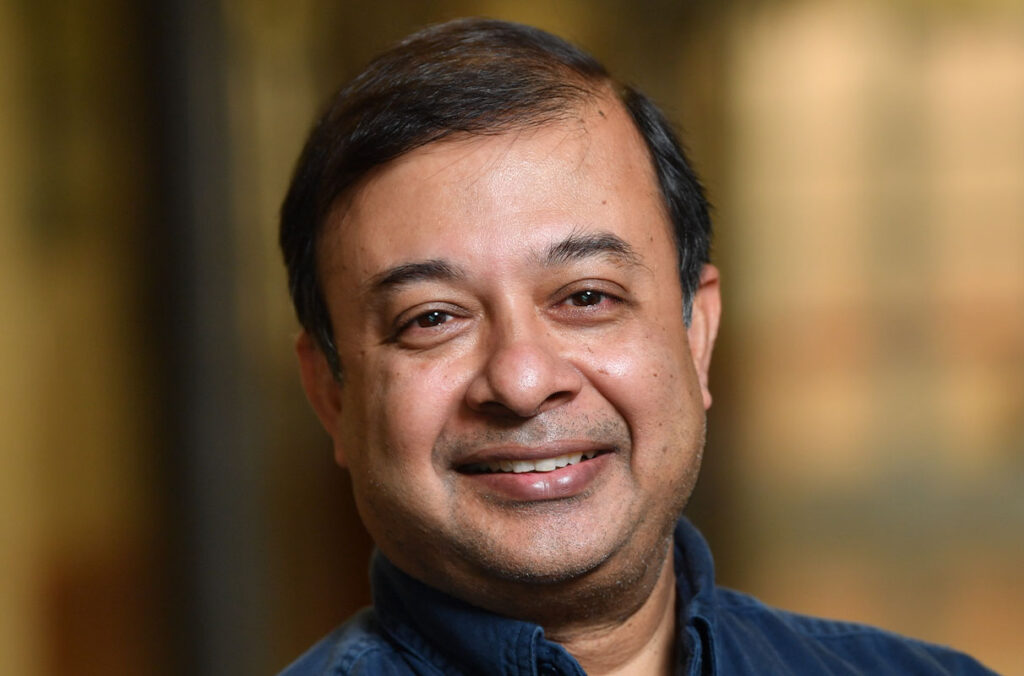
[Image above] Relaxed networking at PACRIM12 with GOMD in Waikoloa, Hawaii. Credit: ACerS
By Ambar Deshkar,Department of Materials Science and Engineering; Rutgers, the State University of New Jersey
The PACRIM 12 with Glass & Optical Materials Division Meeting (GOMD) 2017 held in Waikoloa, Hawaii from May 21-26, graciously hosted by the Hilton Waikoloa Village. Technical experts and scientific researchers in the field of glass and ceramics came together from universities, national laboratories, and industry from all over the world to present their research and to exchange ideas about the latest developments in glass science and technology.
As a Ph.D. student, this proved to be great experience for me to meet not only other graduate students, but also some of the most renowned experts in this field. This helped me establish a network which will really help me as I will look for a job in the near future. I was thrilled to meet in-person some of the most well-known scientists whose research papers I have been using to understand and explain my own research. I was able to discuss my current research with them and get their inputs on my approach. They helped me get ideas to figure out the problems I was dealing and to make more sense out of the results.
“So you want to get published? A workshop for graduate students and young professionals”
A workshop aimed at providing guidance to students and young professionals in writing good research papers was conducted on 22 May, sponsored by Saint Gobain. The panel consisted of Dr. Bill Fahrenholtz, editor-in-chief, Journal of the American Ceramic Society; Dr. Hua-Tay Lin, editor-in-chief, International Journal of Applied Ceramic Technology, and Dr. Mario Affatigato, editor-in-chief, International Journal of Applied Glass Science.
Dr. Bill gave us some very helpful tips about writing certain sections of the paper which are of high importance when it comes to giving one’s paper the competitive edge. These sections are the abstract and the introduction. For the abstract, one should emphasize what is new and original in their research. Authors should not shy away from presenting the key results and conclusions, but they should be presented in a robust manner. Needless to say, the interpretations should be logically supported. I found this very relatable, having just published my first research paper. Picking the right journal to submit paper is also very important. One should use the relevance of their own work with the topics covered and the target audience as important criteria for journal selection.
The panel emphasized attending conferences such as this one in order to interact with experts. As a Ph.D. student, I often wondered how scientists and professors get ideas for new projects. I found this tip very useful as interacting with experts can give an insight about what are the current trends in this field; where funding opportunities are available etc. Volunteering as a reviewer is an excellent way to improve one’s own writing skills so the panel urged students to try to get some experience reviewing papers submitted in journals. As Dr. Bill Fahrenholtz put it, “A good reviewer makes a better writer.”

From left: H.T. Lin, Mario Affatigato, Bill Fahrenholtz. Credit: ACerS
The panel also shared their own experiences from when they were themselves students. Dr. Affatigato talked about an incident in his first paper when a reviewer pointed out a flaw in the results. In order to fix this flaw, he had to work hard for many days, but ultimately, it greatly improved the quality of his paper. Such constructive criticism should be welcomed and students shouldn’t get disheartened when such flaws are pointed out in their work. However, there can be some nasty reviewers out there also, one should beware of them and not get discouraged.
Overall, the committee was very encouraging to the students and young professionals to publish their work. The fact these distinguished personalities also went through something similar to what I go through as a Ph.D. student was very reassuring to me.
Editor’s note: Ambar is a recipient of an NSF-funded travel grant to attend PacRim12. The award was made to Surojit Gupta of the University of North Dakota.
Author
Ambar Deshkar
Spotlight Categories
- Meeting Highlights


